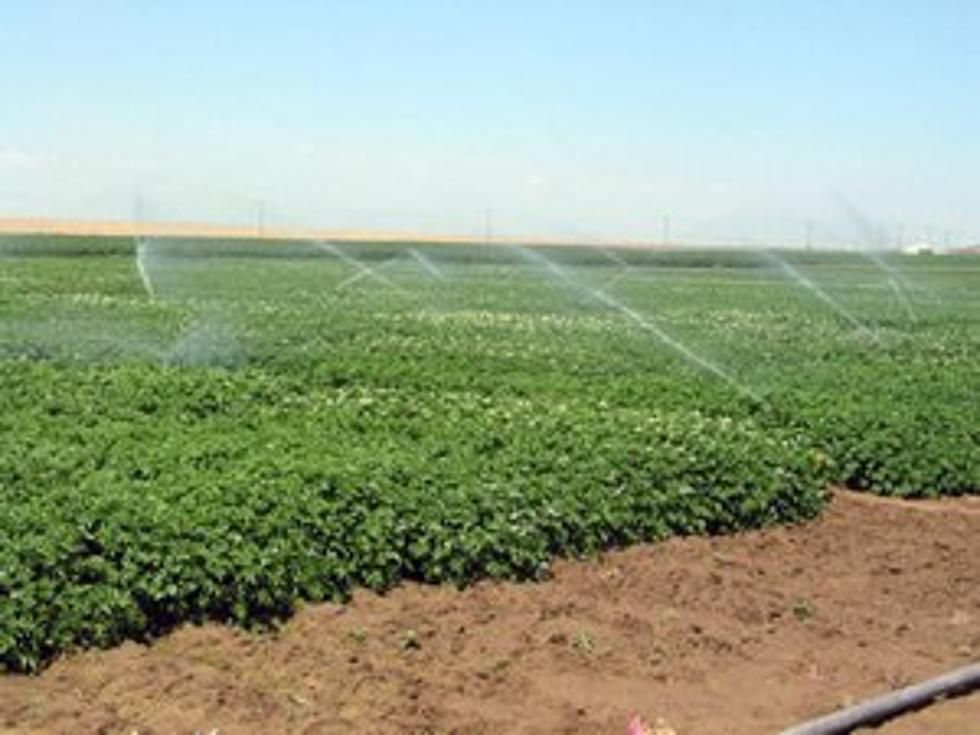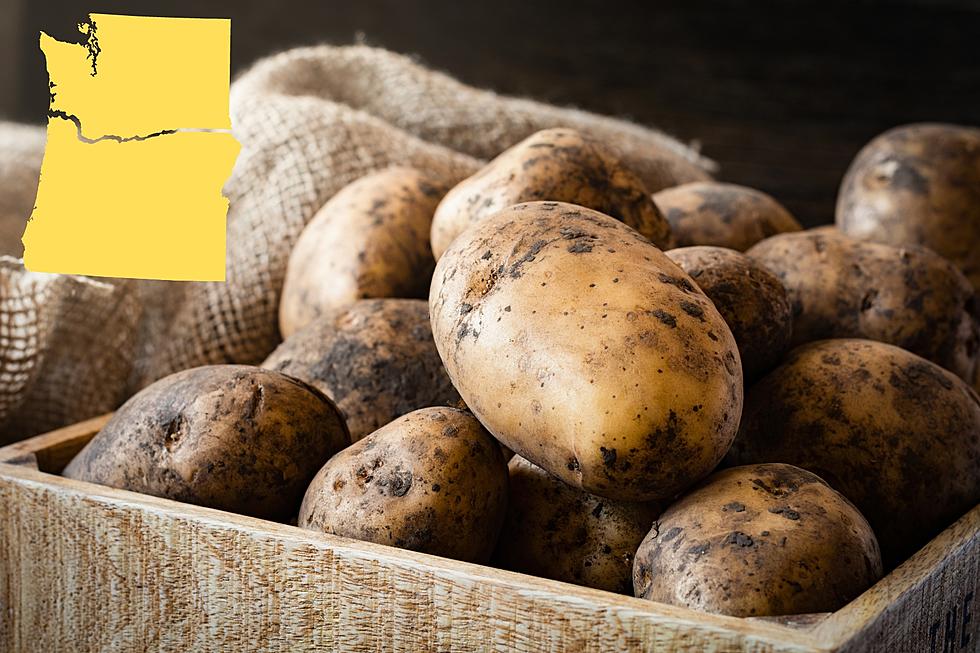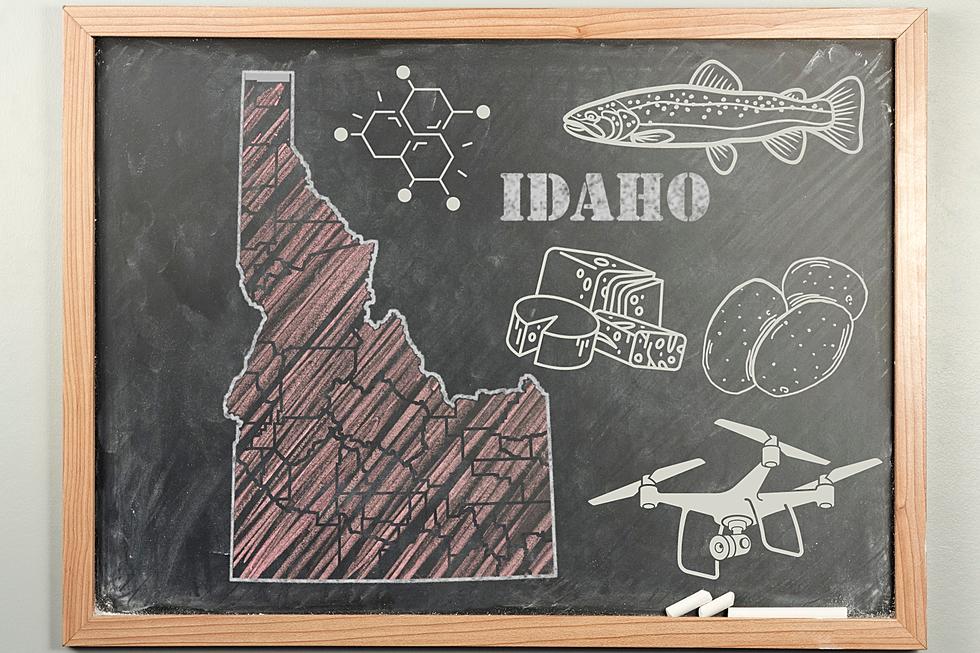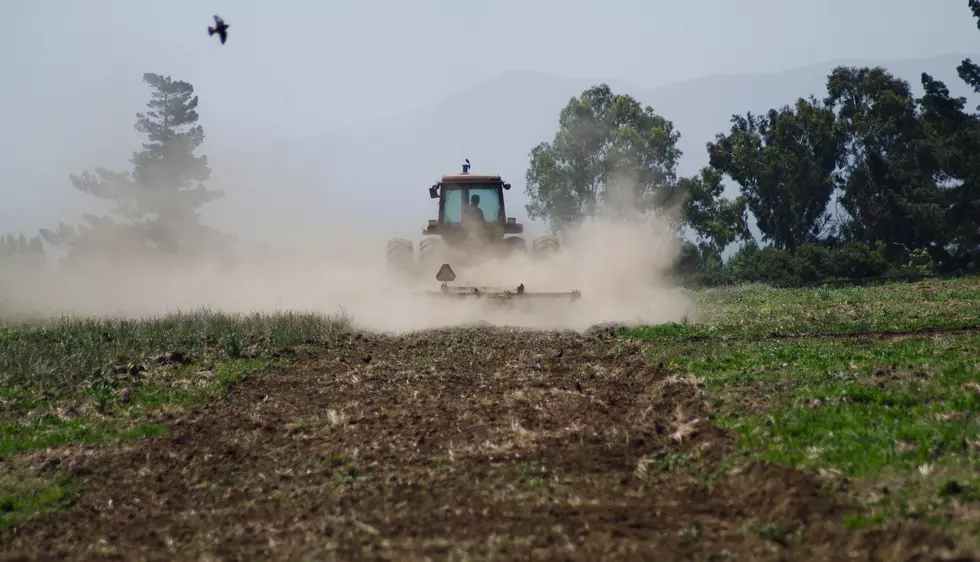
Mineral Oil Prevents Disease in Potatoes
MOSCOW, ID — Several studies have shown applying mineral oil is an economically and environmentally sustainable way for seed potato growers to prevent the transmission of potato virus Y (PVY), yet it’s not a widely used practice in Idaho.
Mineral oil interferes with PVY in the piercing mouthparts, known as stylets, of aphids, which are vectors of the disease. University of Idaho graduate student Kelie Yoho, who is pursuing a doctorate in entomology, suspects many of the state’s seed potato growers avoid mineral oil as a crop protectant due to the potential for overhead irrigation to wash it off foliage.
Based on results of trials for Yoho’s dissertation, concerns that mineral oil treatments might not withstand irrigation appear to be unfounded. Mineral oil applications are part of a three-pronged approach Yoho has been researching to help Idaho seed potato growers better protect their crops from PVY.
Yoho, a Twin Falls resident who was raised in South Bend, Indiana, has also tracked timing of aphid flights and studied the tendency of potato plants to become less susceptible to PVY with age.
“When you’re a seed grower and the threshold for PVY is as low as 1% for recertification, everything matters,” Yoho said.
PVY is notoriously difficult to control with insecticides alone. Most of the more than 60 aphid species that transmit PVY don’t colonize on potatoes, which aren’t a good host plant. Rather, they shallowly probe the epidermis of leaf tissue with their stylets, ingest PVY and quickly move on to the next plant to probe again, before insecticides take effect.
Yoho planted her trial at the U of I Kimberly Research and Extension Center adjacent to heavily infested plots. She obtained the best results with a combination of mineral oil and insecticide, despite the use of overhead irrigation.
In 2021 irrigated trials, crop oil alone reduced PVY rates by 10%, whereas mineral oil and insecticide used together reduced PVY by 23%. Insecticide alone reduced PVY by just 2%. When she repeated the experiment in 2022, mineral oil reduced PVY by 14%, compared with a 20% reduction with a combination of mineral oil and insecticide and a 10% reduction with insecticide alone.
Yoho is also tracking populations of beneficial insects, which can tolerate mineral oil but are highly sensitive to insecticides. Mineral oil is cheaper than insecticide but generally must be applied more often. Prior research has shown that mineral oil is absorbed into the leaf, which may help it remain effective following overhead irrigation.
“Crop oil alone is not enough to reduce PVY levels beyond the threshold that seed growers would need to recertify their fields,” Yoho said. “You would need to incorporate it into a broader integrated pest management program.”
She’s participating in a field study this summer assessing how much mineral oil remains on leaves after overhead irrigation in comparison with drip irrigation. Dye has been added to the mineral oil to help the researchers quantify oil concentration on leaves following irrigation.
Yoho and her team have also set out yellow bucket traps in seed potato fields in Ashton to track aphid migrations throughout the growing season. The data will help them develop a model to help growers understand how the temperature affects insect development as a predictor of PVY risk. The greatest peaks in aphid migrations they recorded were immediately after a nearby alfalfa field was harvested, leading aphids to search for new fields to inhabit.
For her third project, Yoho’s team has set up hoop houses in a seed potato field in Kimberly, exposing plants to PVY-infected aphids at various points throughout the growing season. Data from the experiment could help growers time protective crop oil sprays.
For her contributions to the potato industry, Yoho earned $2,300 toward her education by winning the John L. and Lois K. Toevs Fellowship, which is awarded annually to a full-time student and gives preference to graduate research pertaining to potatoes or agronomy conducted at the U of I’s Aberdeen, Kimberly or Parma Research and Extension Centers. Yoho worked on her project under advisor Erik Wenninger, who is a UI Extension entomologist.
Her project received funding through a $5.8 million USDA National Institute of Food and Agriculture Specialty Crop Research Initiative grant awarded to University Distinguished Professor of Entomology, Plant Pathology and Nematology Alexander Karasev under award No. 2020-51181-32136.
Source: University of Idaho Extension
Quickest 5 Steps to Cut & Cube a Watermelon
More From PNW Ag Network









